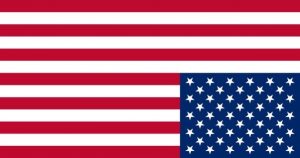The men behind QAnon
Evangelicals who will be happy when the Rapture comes.
James Arthur Watkins, 56, who gained control in 2015 of the controversial anonymous message board 8chan, and his son, Ronald Watkins, former 8chan administrator and current administrator of its successor, the Watkins-owned 8kun. Fredrick Brennan, creator of the website 8chan.
Experts and researchers said the key to “Q” is hiding in plain sight.
Q Influencers (on facebook)
QAnon’s messaging is laced with religious allegory, prophesies, puzzle-solving and an emboldening sense of belonging to the right side of an epic battle of good versus evil.
The user “Q Clearance Patriot,” known to followers as “Q,” purports to be a high-level military intelligence official who leaves clues about the secret battle behind the scenes with “Q drops” — messages first posted in late 2017 on the anonymous imageboard 4chan, and later on 8chan and its successor, 8kun.
The “chans,” as they are known — where the messages are posted — are low-trafficked anonymous imageboards populated largely with hate speech, pornography and rhetorical violence.
Instead of registering users, the sites issue users a tripcode — a unique sequence of code that allows a user’s identity to be recognized without storing personal data, a practice that researchers say protects free speech but fuels the spread of disinformation.
What began in 2017 as a political conspiracy theory has since morphed into a meta-conspiracy movement that in sum aims to account for much of the evil in the world, sweetened by the promise of evil’s swift demise with “The Storm” — the perpetually imminent arrest of tens of thousands of “enemy” Americans — and “The Great Awakening” — the subsequent, Rapture-like new beginning for the world where believers’ faith is recognized and rewarded.

 QAnon Key Figure Revealed as Financial Information Security Analyst from New Jersey
QAnon Key Figure Revealed as Financial Information Security Analyst from New Jersey